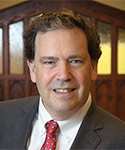What do you do when your congregation chooses to do something new? Perhaps your congregation wants to start a homeless ministry. Maybe your congregation is working on renovation of the building and it has been more than a decade since a significant building project. Perhaps you and your colleagues want to encourage faith formation in a different way. The new thing could be addressing a long-term issue that the congregation has avoided. No one needs help in creating a list of new demands on a congregation. Each can seem like starting a deep-space mission. Your congregation is often in a situation where it is expected to think and behave in ways that it has not yet learned with knowledge it does not yet hold.
If the tasks are unfamiliar or if the content and the process are not clear, then your congregation will need to learn new behaviors in order to achieve your goals.
What is learning? Learning is durable change in behavior. It almost always emanates from experience. You read something (reading is an experience). You now think differently. Or you are at a workshop. The teacher describes a fresh way of doing a task. You go back home. You try something unique. You reflect on your experience. Repeat. Now, you have learned. The change endures.
Of course, for a congregation to learn new behavior, individuals who are part of that congregation need to learn. It is possible to assert that organizations learn. When organizational learning takes place it is because individuals engaged with one another are taking on new ways of thinking. The individuals experience durable behavioral change as part of the organization.
Save 30% if you order now »
Mention promo code 4ALBWK617 when you order “How Your Congregation Learns” on the Rowman & Littlefield website or order by phone at 800-462-6420. Offer expires July 31, 2017. Discount cannot be combined with other special offers.
Accomplishing new things requires organizational learning. Think back on a time when your congregation accomplished something new. You might say that your congregation started a new program. If it is indeed a new program, then it is more accurate to say your congregation learned to start a new program. Did your congregation reorganize its committee structure? It is more precise to say that your congregation learned a new way of decision making.
Learning is a comprehensive frame that encompasses many approaches to building congregational capacity. For example, some frames emphasize leadership. Some highlight a specific theological perspective. Some paradigms focus on external assessments, such as understanding a local community or a particular generation of people. Some approaches involve naming and claiming strengths. Your congregation may have used these approaches to acquire new knowledge. You then turned that knowledge into new behaviors.
One congregation started their path to achieve something new because of babies. The conversation began in the basement of the church. A woman sitting in a rocking chair was with three others. She remarked, “I used to rock all my babies. Every night we fell asleep together.” Her friend said, “I just read that our town has babies that need rocking.”
This conversation led to more. Soon the two women were talking with their pastor about starting a rocking chair ministry for babies at the county daycare for infants and toddlers. A brief announcement in worship a month later yielded nine volunteers. When the church volunteers showed up at the daycare to sign up, they were met with a friendly but firm “no.” It turns out that you can’t just show up and be handed a baby. You have to be trained. Volunteers have to participate in a six-week course in proper and tender care of infants. The school needs to run background checks. The director has to meet with the pastor. For this congregation to begin a new program, individuals were going to have to learn new ways of doing something as natural as holding a baby.
That’s exactly what happened next. This group of nine women and men began a journey to learn how to do ministry at a public daycare. They reported back to the church board. They registered for the training class. The congregation hosted three civic conversations that covered public health issues and psychological dynamics like attachment theory. During Lent, the pastor preached on baptism and public ministry. The congregation learned new behaviors related to working with a nonprofit. As a community of faith, individuals learned the new behavior of rocking babies to sleep, not at home in the nursery, but in a public setting for the common good.
Education versus training
Congregations that learn new behaviors go on a discernible learning journey. An identifiable model can be observed in congregations that learn to do new things well. This book will take you through this model, or what I’m calling a “journey.” Yet, before we start such an expedition I want to note that not all endeavors in the congregation need to be conceived as a learning journey. Not all endeavors in the congregation require acquisition of new knowledge or different behaviors.
Educator Robert Kegan notes the difference between education and training. Training is an informational stance. It leaves your view of the world essentially the same. Education is different. It changes the essential nature of who you are. The word education is built out of the Latin verb that means “to lead.” Education leads you out from one construct of life to another. Education is what leads to transformation.
Excerpted from “How Your Congregation Learns: The Learning Journey from Challenge to Achievement,” by Tim Shapiro, published by Rowman & Littlefield. Used by permission. All rights reserved.











